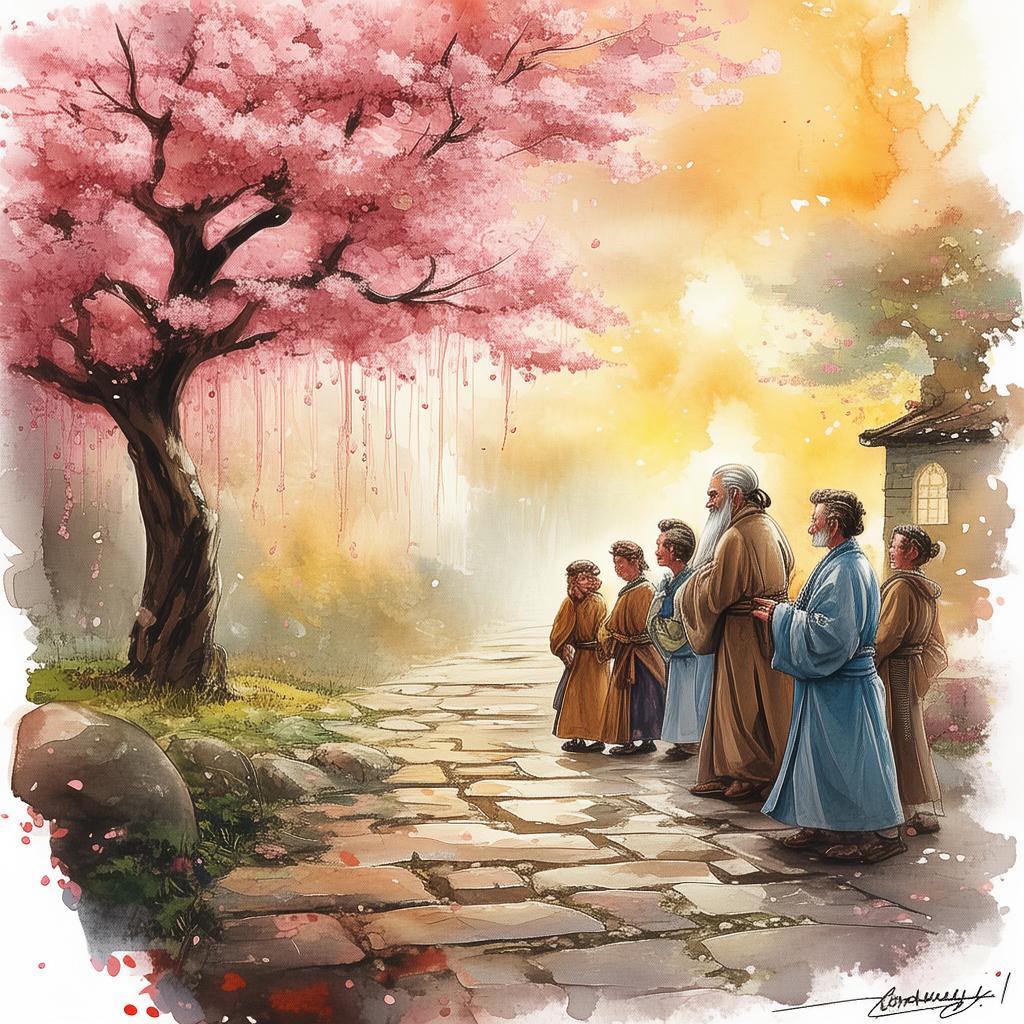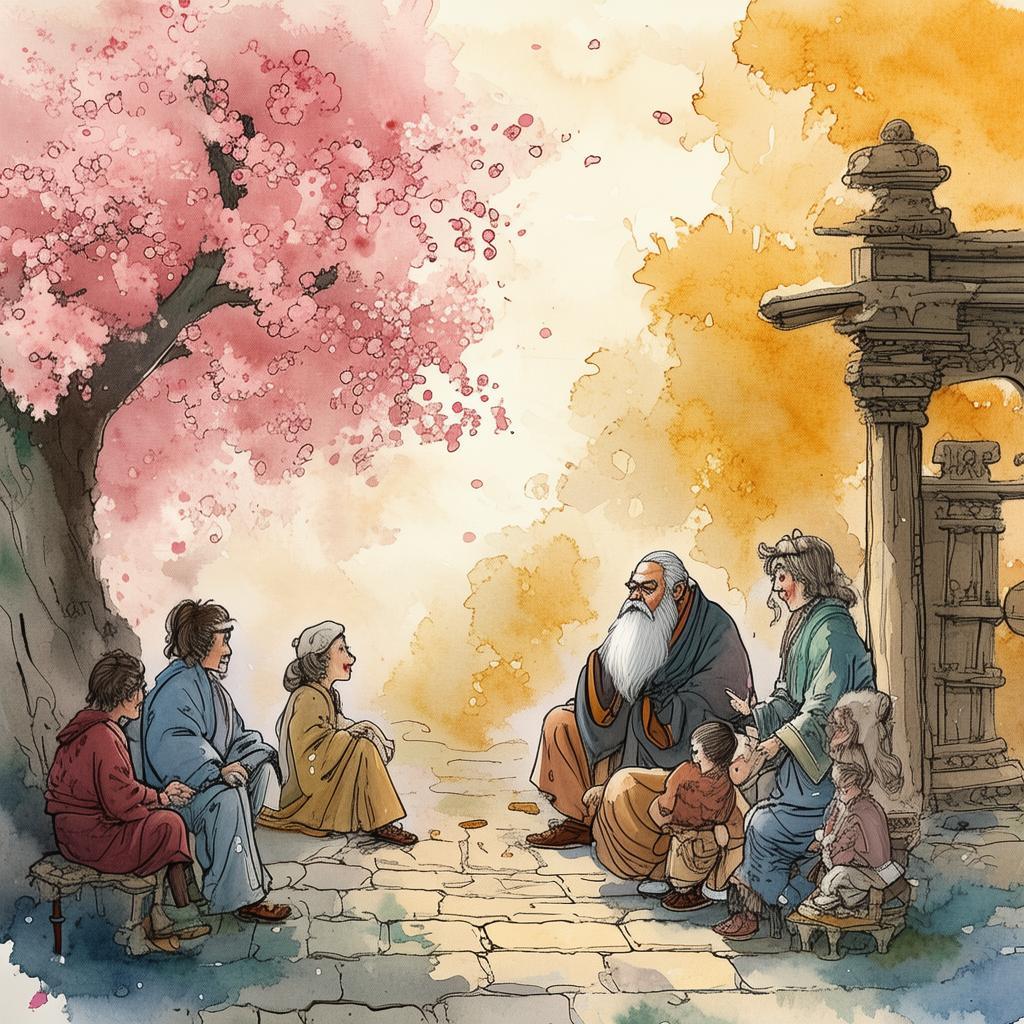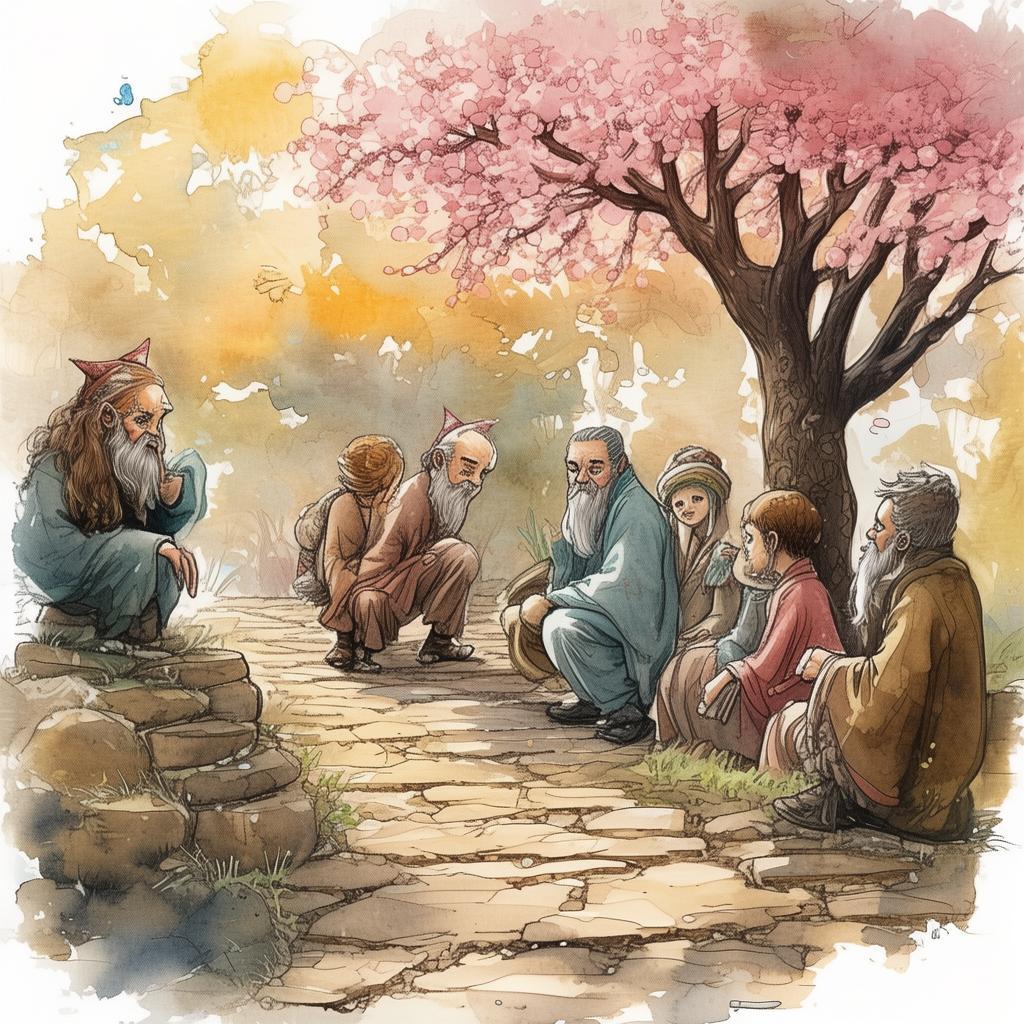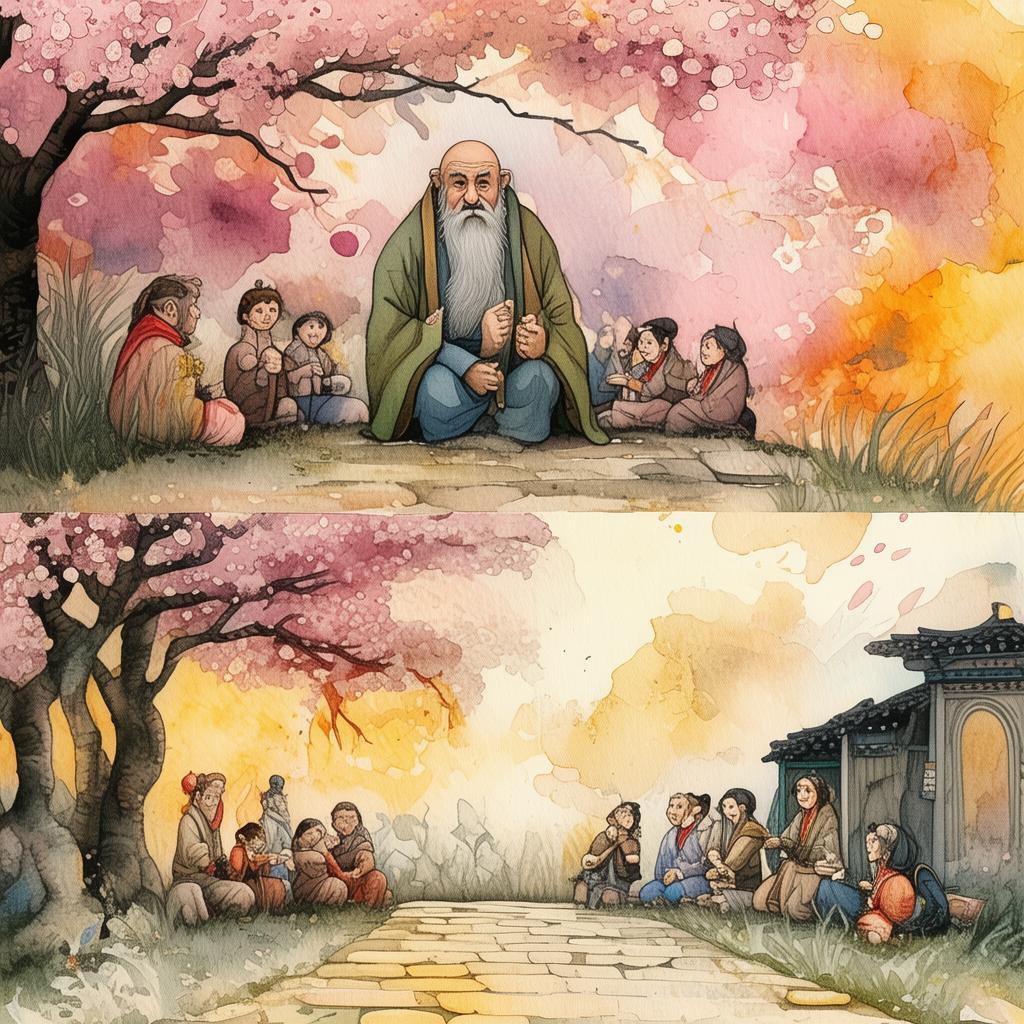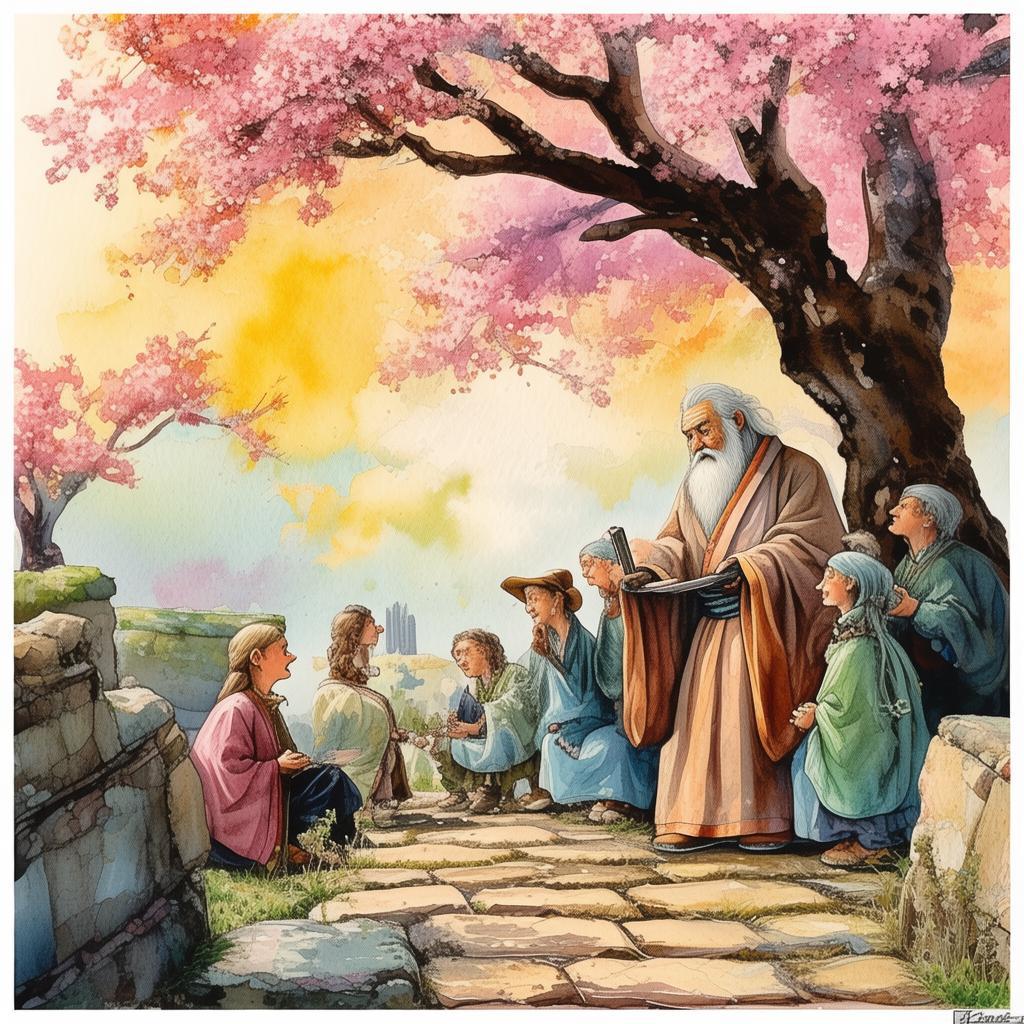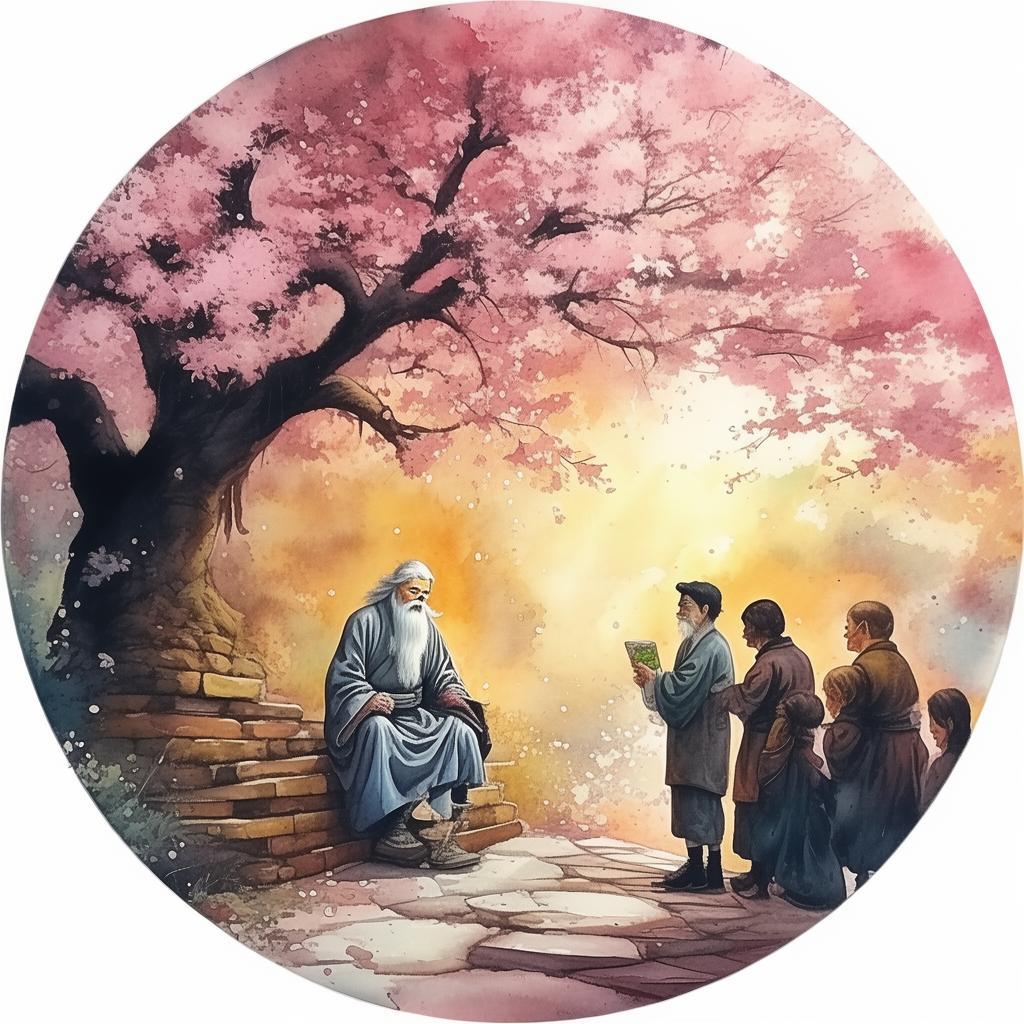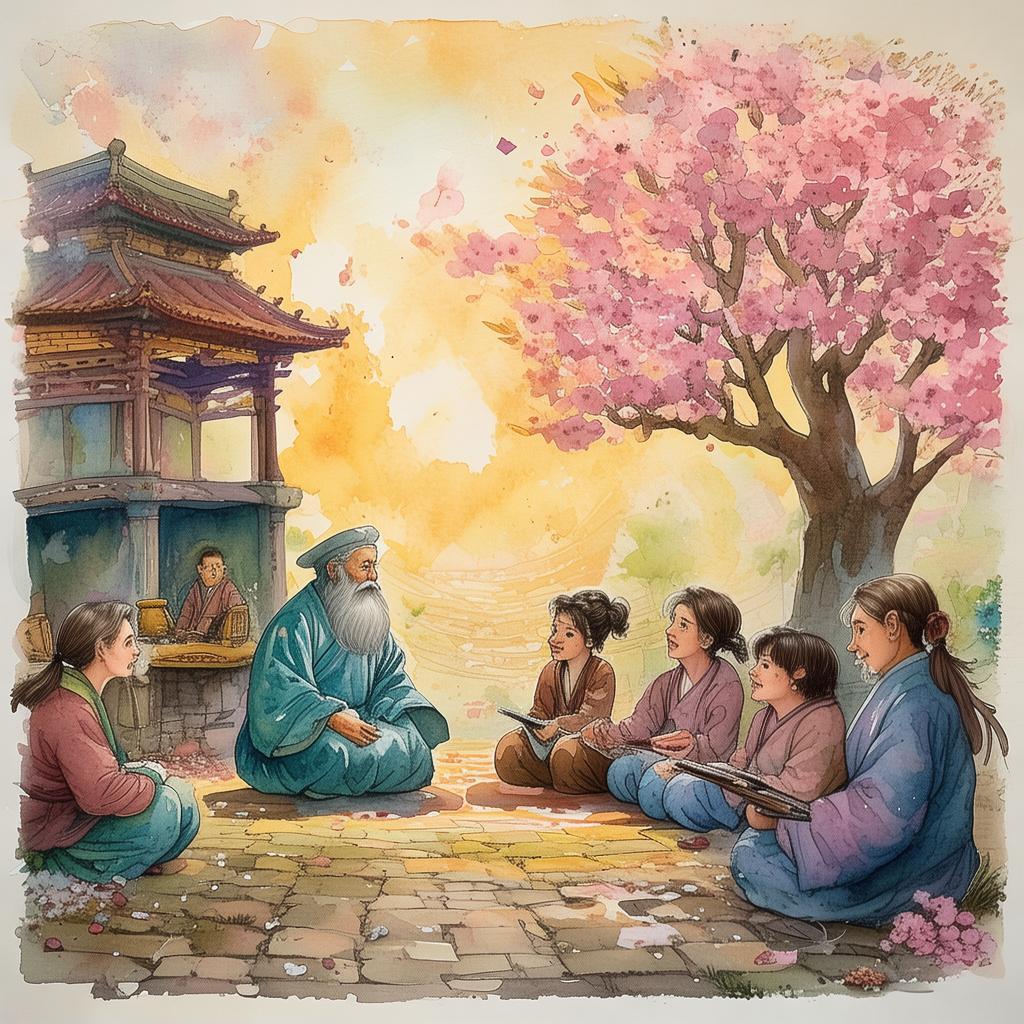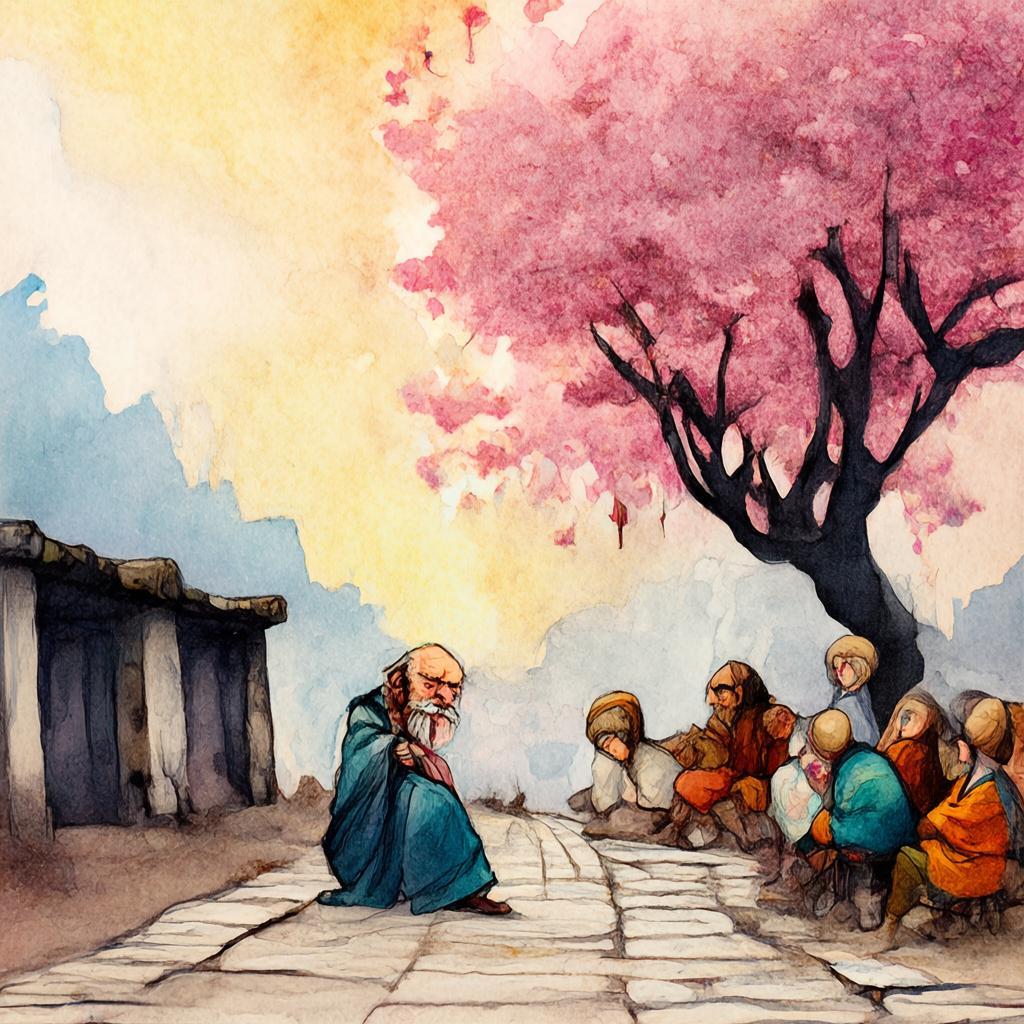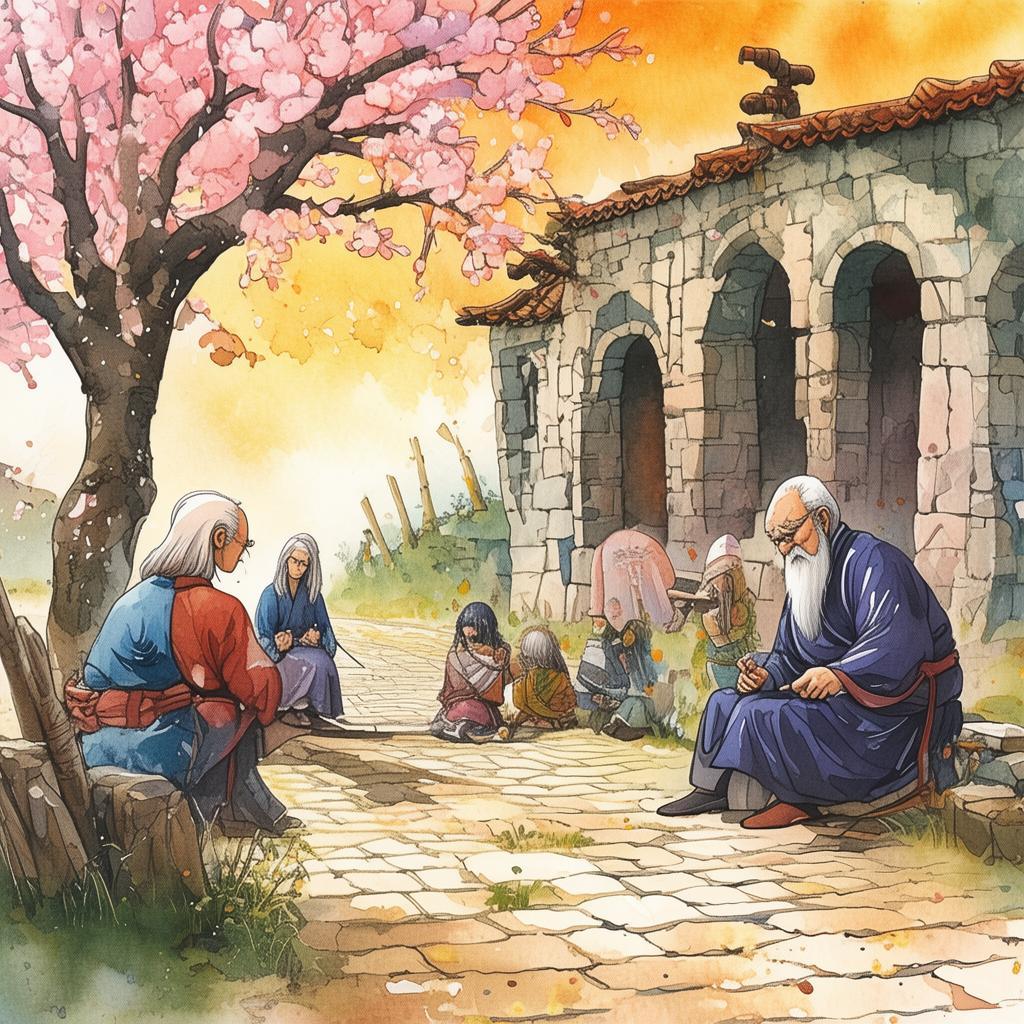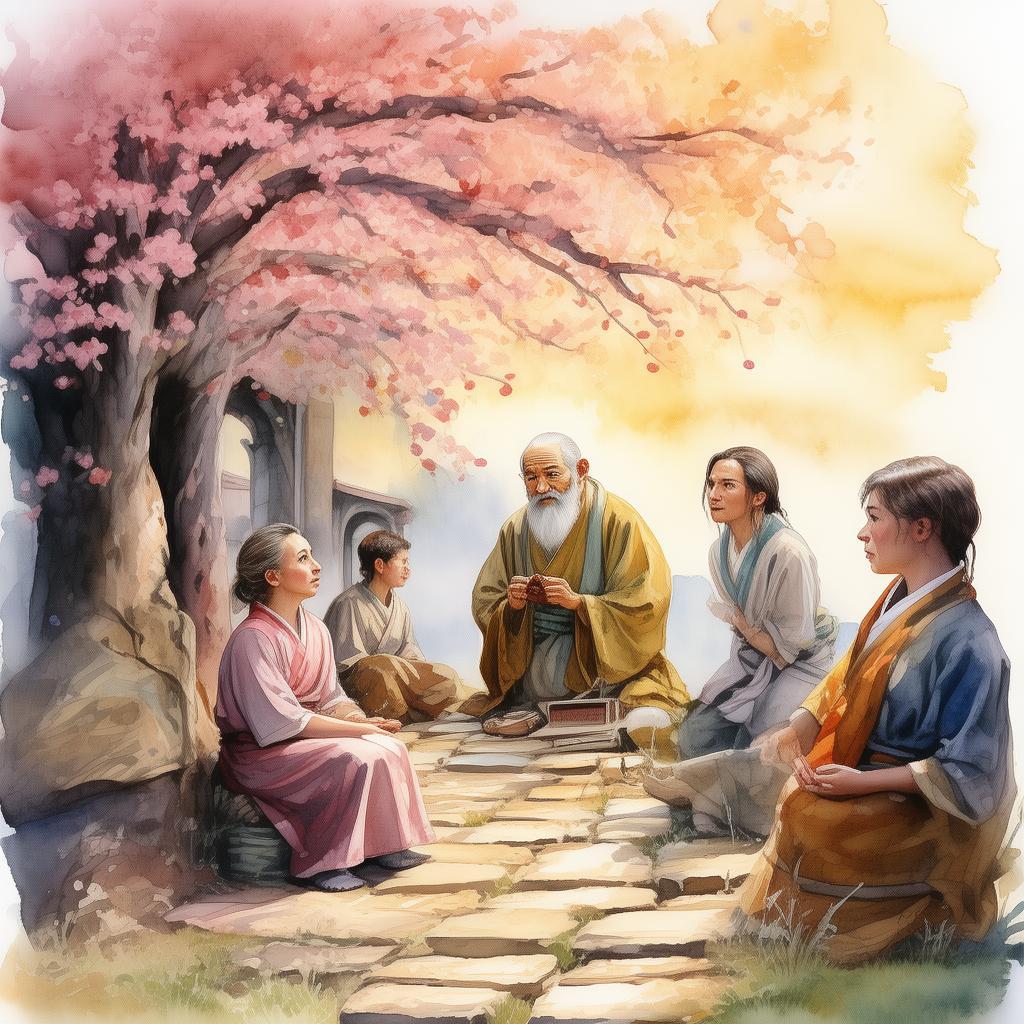The Enigma of the Vanishing Poet
The rain poured down on the cobblestone streets of Paris, a city where the past seemed to whisper through every alleyway. Inside a quaint bookstore, tucked away from the world's chaos, lay the life's work of a poet, whose words were as enigmatic as the man himself. His name was Lucien, and he had vanished without a trace, leaving behind a series of poems that seemed to foretell his own demise.
Detective Elara had always been intrigued by the enigmatic allure of literature, and when she heard about Lucien's mysterious disappearance, she felt an inexplicable pull to unravel the web of his life. The bookstore owner, an elderly man named Monsieur Marchand, handed her a tattered notebook filled with Lucien's last poems, each one a riddle waiting to be solved.
The first poem read:
"Beneath the moon's pale light,
A shadow dances, free.
In dreams, they find their might,
The muse, the truth to see."
Elara's mind raced. The moon, dreams, the muse... it all seemed to point towards a deeper truth that Lucien had tried to convey. She delved deeper into his work, piecing together a narrative that seemed to suggest he had discovered something extraordinary, something that could change the very fabric of reality.
As she delved further, Elara encountered a series of misinterpreted inspirations that had shaped Lucien's life. The first was a painting, "The Scream," by Edvard Munch. Lucien had written about the painting's haunting image, suggesting it was more than a mere work of art—it was a window into a world of hidden truths.
The second was a quote from Shakespeare's "Hamlet," where the character Hamlet asks, "To be, or not to be: that is the question." Lucien had interpreted this as a call to action, urging his readers to question everything and to seek the truth beyond the veil of perception.
The third was a fragment of a poem from John Keats, "A thing of beauty is a joy forever." Lucien had rewritten the line as, "A thing of beauty is a misinterpreted muse," suggesting that beauty itself could be a guide to understanding the world in a new light.
Elara realized that Lucien's poems were not just about himself, but about the transformative power of misinterpretation. He had shown her that every piece of art, every quote, every moment in life could be a source of inspiration, even if it was misinterpreted.
As she followed the clues, Elara discovered that Lucien had been studying the works of a little-known philosopher, who had posited that reality was an illusion, and that the true self was a hidden, untapped potential. Lucien had become obsessed with this idea, believing that he had found a way to unlock the door to this hidden realm.
The final clue led her to a secluded garden in the heart of Paris, where Lucien had once lived. She found him, not as a man who had vanished, but as a spirit, ethereal and boundless, surrounded by the misinterpreted inspirations that had defined his life.
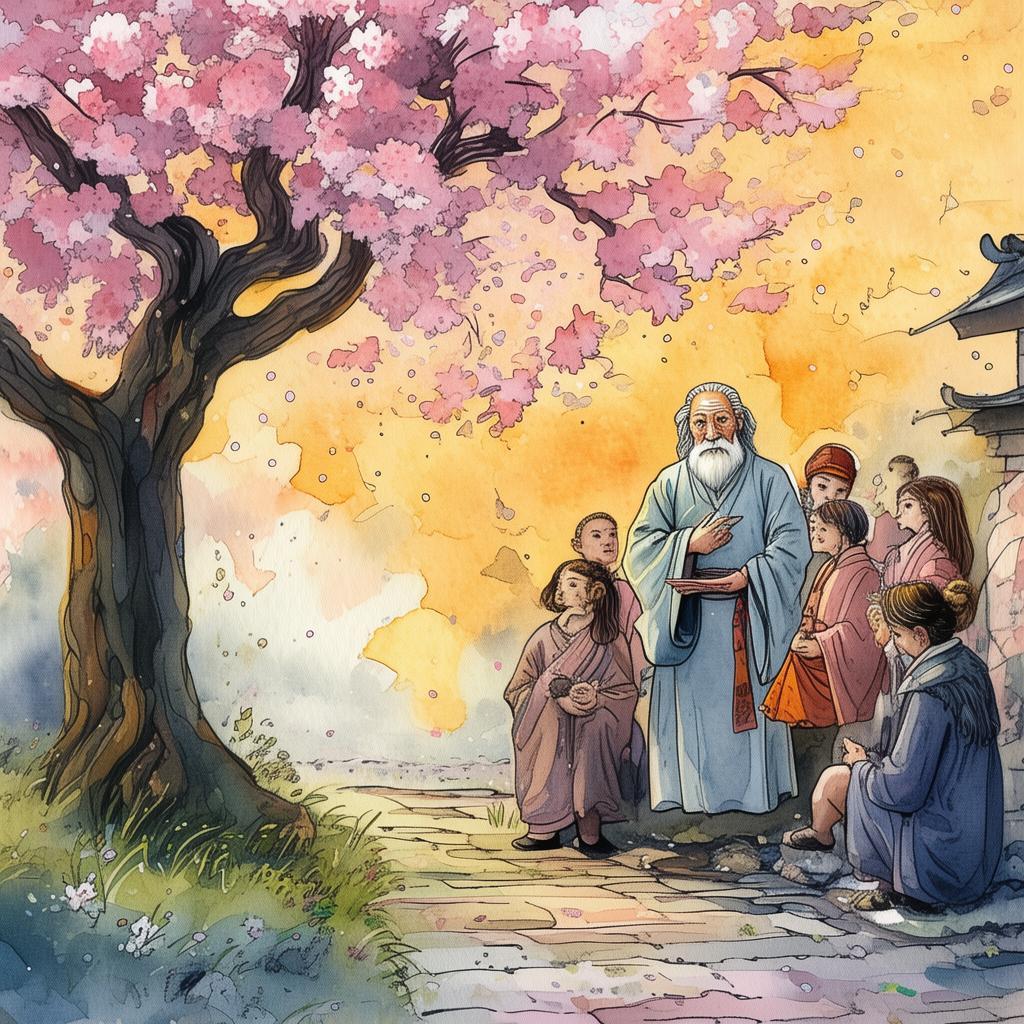
In the garden, Elara realized that Lucien's disappearance was not an ending, but a beginning. His spirit had merged with the essence of his work, becoming a guide for those who sought to understand the true nature of reality.
As she whispered a final farewell to Lucien, she felt a profound sense of connection to his legacy. She knew that the misinterpreted inspirations he had left behind were not just poems, but keys to a world of infinite possibilities.
The rain had stopped, and the sun began to break through the clouds. Elara left the garden, carrying with her the wisdom of Lucien, the poet who had taught her that every misinterpretation held the potential for profound insight.
In the end, it was not the enigmatic Lucien who had vanished, but the idea of him that lived on, inspiring others to seek truth in the most unexpected places. And so, the story of the enigmatic poet became a legend, a reminder that even in the darkest of times, the light of misinterpreted inspirations could shine brightly.
✨ Original Statement ✨
All articles published on this website (including but not limited to text, images, videos, and other content) are original or authorized for reposting and are protected by relevant laws. Without the explicit written permission of this website, no individual or organization may copy, modify, repost, or use the content for commercial purposes.
If you need to quote or cooperate, please contact this site for authorization. We reserve the right to pursue legal responsibility for any unauthorized use.
Hereby declared.
